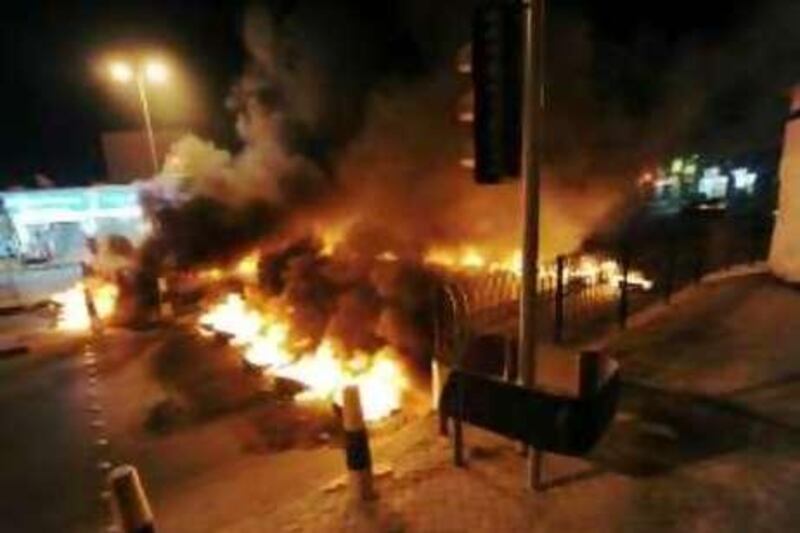A prominent Bahraini human rights activist defended 23 Shiite men yesterday who are accused by the government of belonging to a "terrorist network" intent on overthrowing the country's Sunni royal family. The official news agency, BNA, reported on Saturday that the men are members of a "sophisticated terrorist network with international support". The men, in custody since mid-August, include academics, taxi drivers, civil servants and several unemployed men. Two are Bahrainis who live in London and many are members of the political group called the Haq Movement for Liberty and Democracy, including its leader, Abd al Jalil Singace.
"The leaders of the network have been accused of several crimes, including the planning and instigation of violence, conducting a wide-ranging propaganda campaign against the kingdom and seeking to overthrow the regime by force," Abdulrahman al Sayed, a Bahraini public prosecution official, said in a statement at the weekend. The statement said the group's funds came through the misappropriation of charity donations and overseas funds supported by "foreign entities".
Nabeel Rajab, the president of the Bahrain Centre for Human Rights, said the 23 men were not guilty of either terrorism or sedition. "I don't think this is a terrorist network. They are political activists and human rights defenders. It is an opposition group," Mr Rajab said. "There are no groups in Bahrain that want to overthrow the government; they want a parliament with power, fair elections, and to stop a policy of discrimination against Shia.
"They have legitimate demands; they are respected people," Mr Rajab added. He said he believes the government is trying to antagonize the country's Shiite majority into supporting hardline political groups that boycott polls in the run-up to next month's general election. "Working for human rights in Bahrain today is considered to be a terrorist act," Mr Rajab said. "Hundreds" of websites have been blocked by the government in the past week, including that of Al Wefaq, the country's main Shiite political group that usually does not boycott elections, he said. "That shows how much the government respects freedom of expression in Bahrain."
The arrests have led to increased tension and violence across the country in the run-up to the October 23 election, he said. "On every street corner of every village there are thousands of police with machine-guns." Mr Rajab said the failure to deal with discrimination against Shiites, gerrymandering in elections and the Sunnis' domination of top government jobs has led him to believe that the parliament "is not functioning properly".
Sheikh Khalid al Khalifa, the minister of foreign affairs, defended his government against accusations of curbing democratic freedoms in the name of fighting terrorism. "The kingdom of Bahrain is proud of its open society and ongoing democratic reforms that allow for freedom of expression and peaceful protest. However, no democracy can allow freedoms to extend to the perpetration, planning and instigation of violence," Sheikh Khalifa said in a statement.
Riad Kahwaji, the chief executive officer of the Institute for Near East and Gulf Military Analysis (Inegma), said he believes there is a regional dimension to the government's crackdown, although "we don't have any independent reports telling us the full picture". He said that even though Bahrain has not named the foreign countries it believes to be funding dissidents, "there could be an Iranian involvement".
"The way it has been branded [by the Bahraini government] is to suggest there is a wider regional perspective," he said. Suspected Iranian terrorist cells have been discovered in other Gulf countries such as Kuwait and they could also be involved in Bahrain. "Iran has unprecedented influence on Shiite communities worldwide, especially in the Arab world," Mr Kahwaji said. "Bahrain hosts the US 5th Fleet; there's a lot of history here that would lead us to point the finger at Iran.
"Iran's main issue with the Gulf countries is their relationship with the US and allowing it to have bases in the region." jcalderwood@thenational.ae






